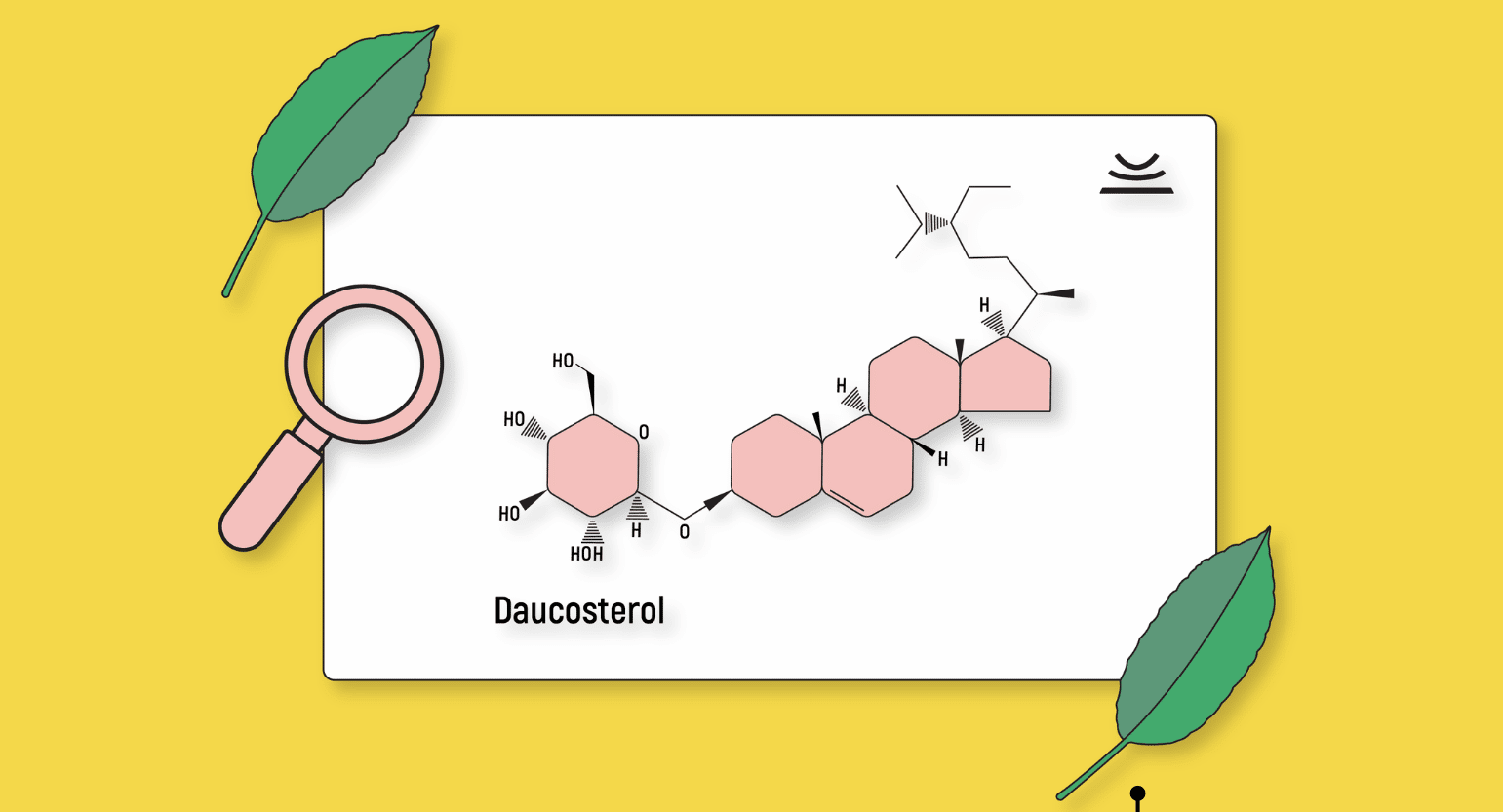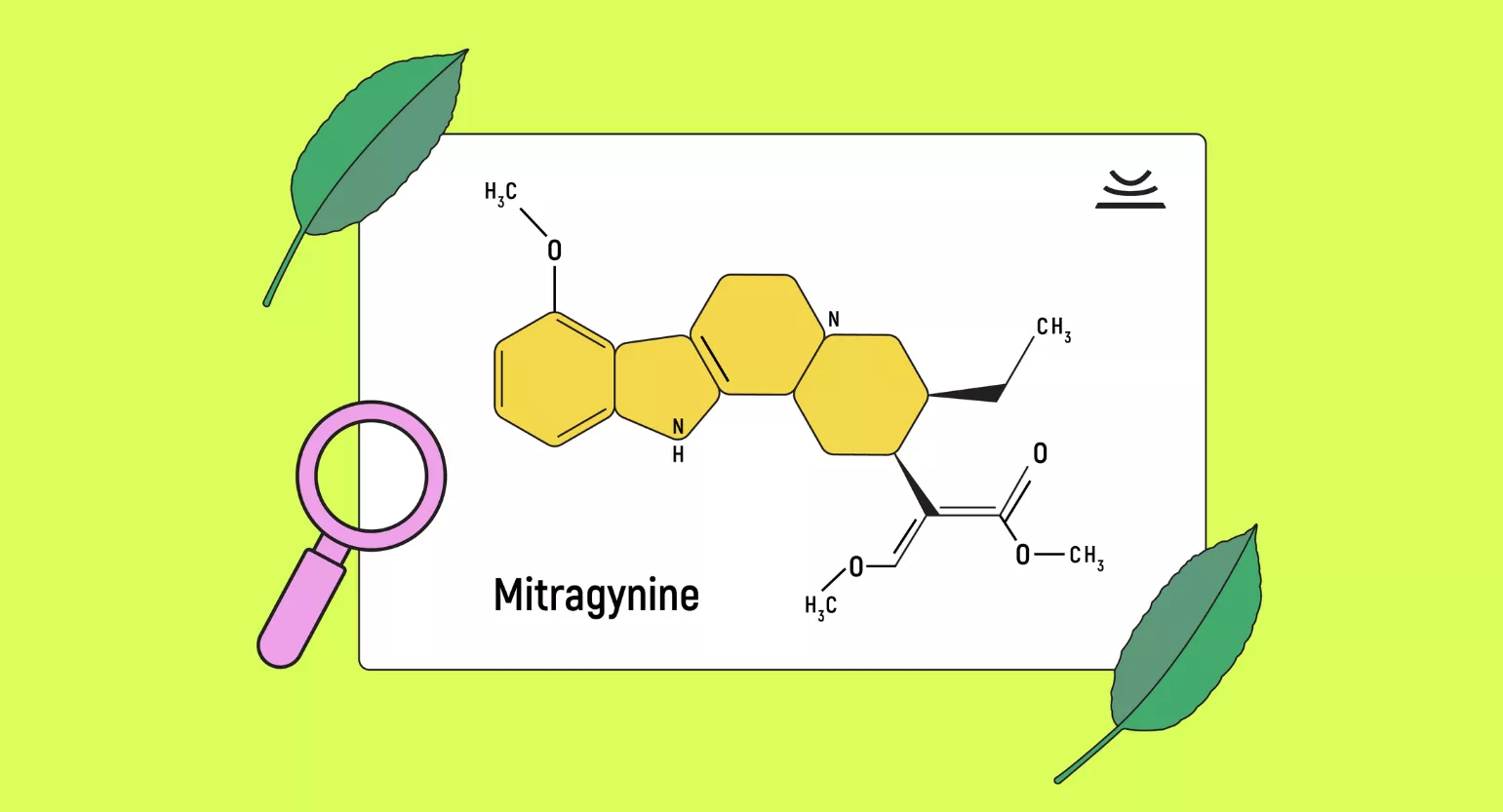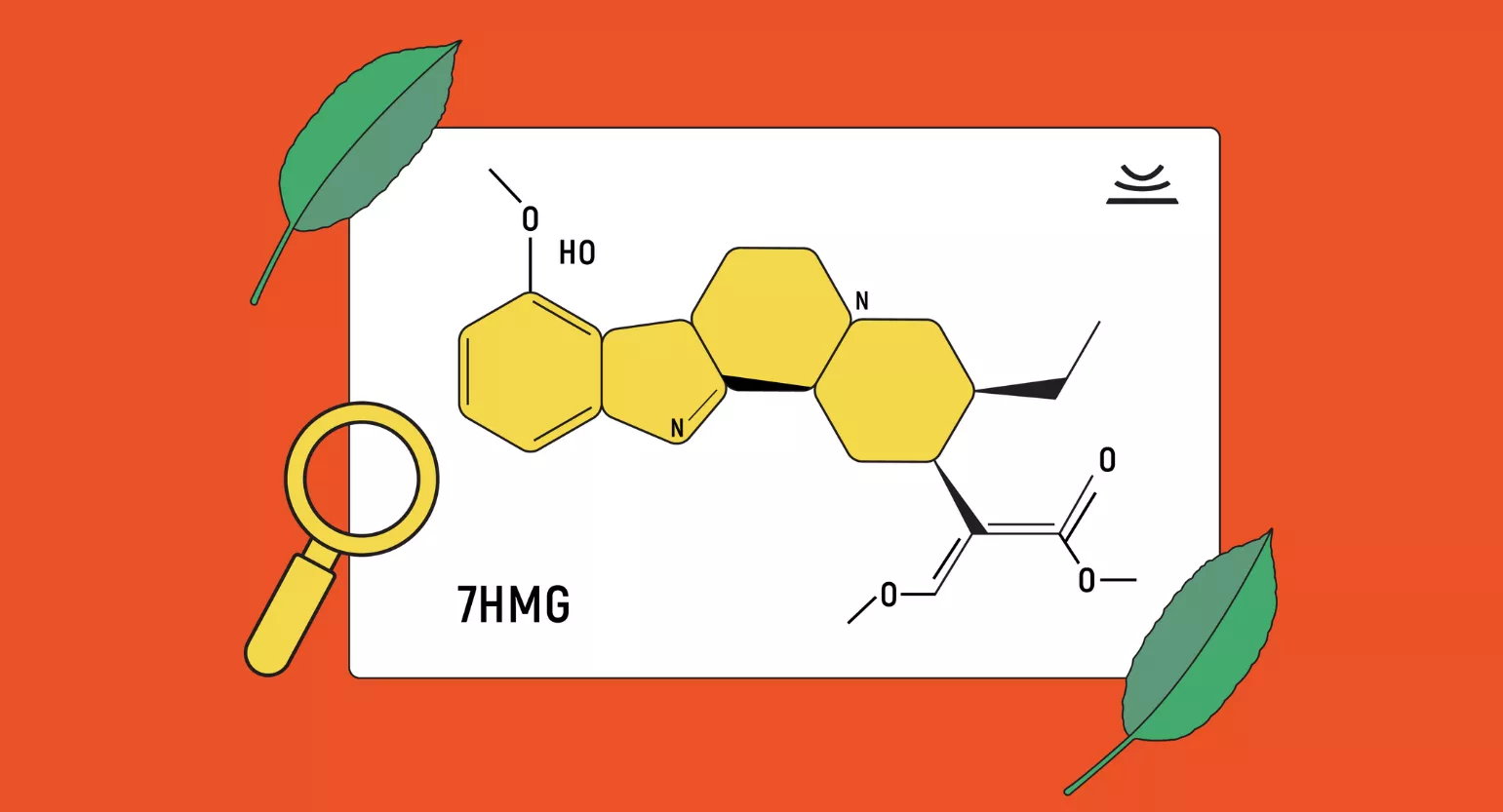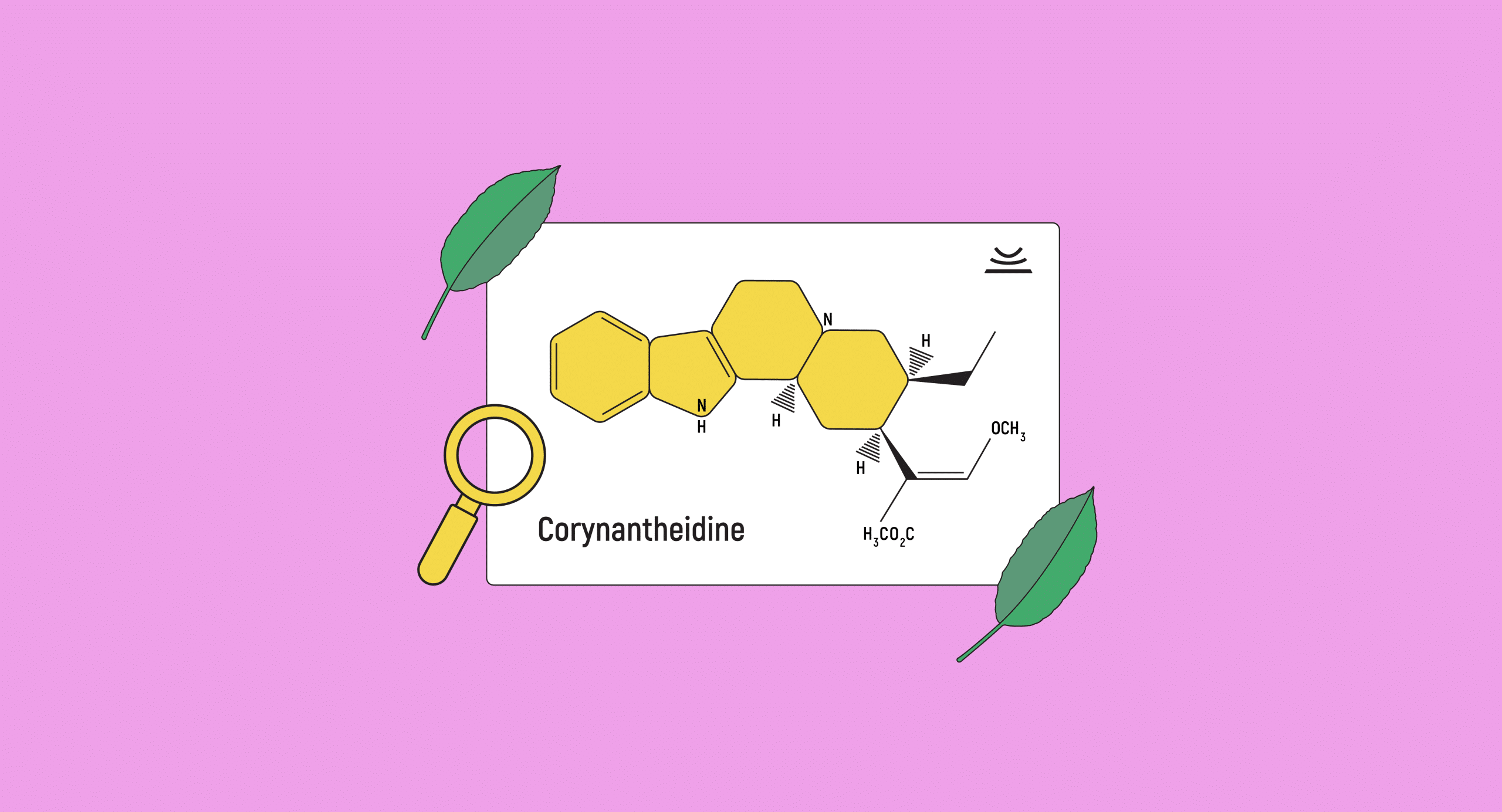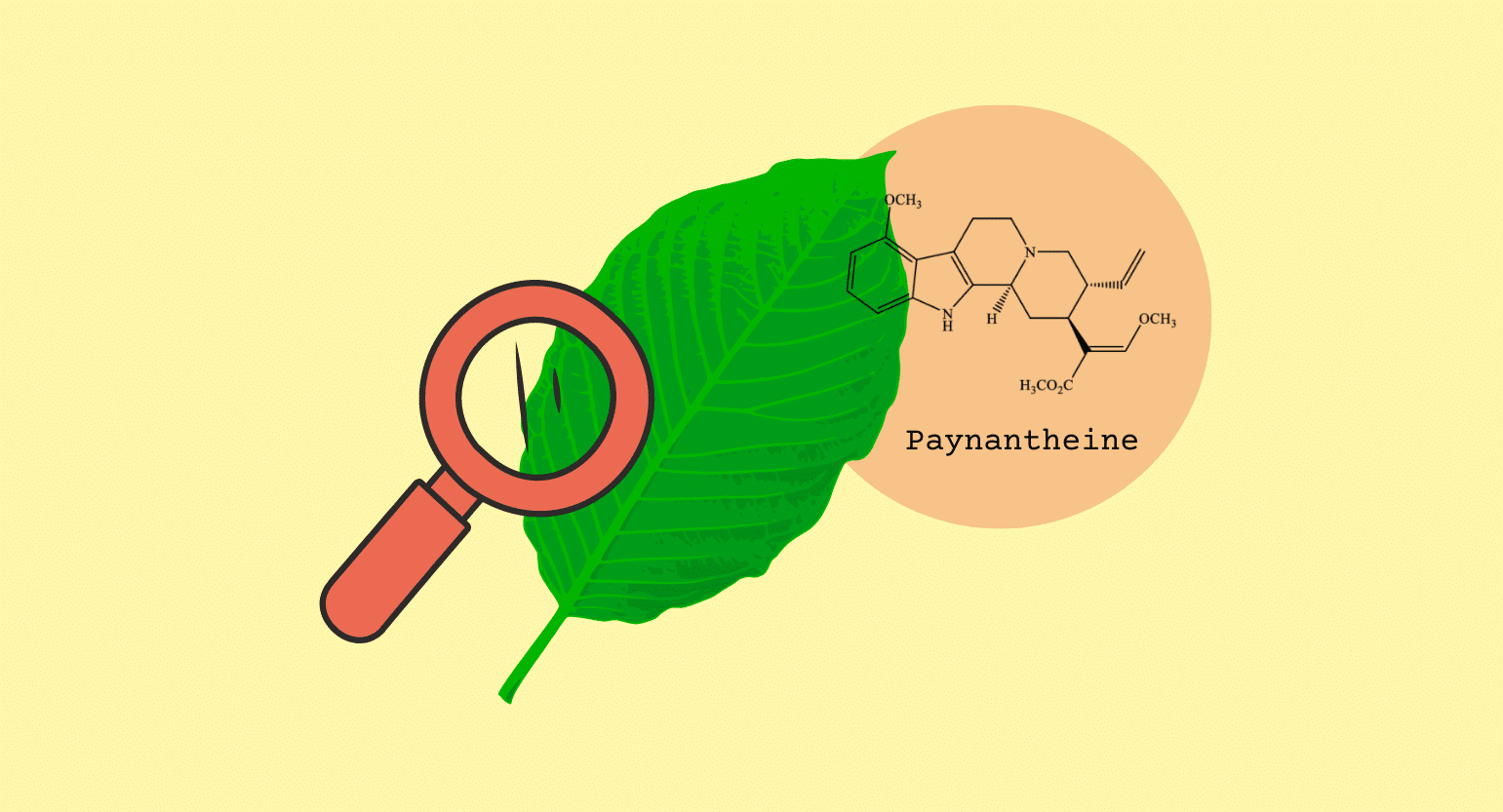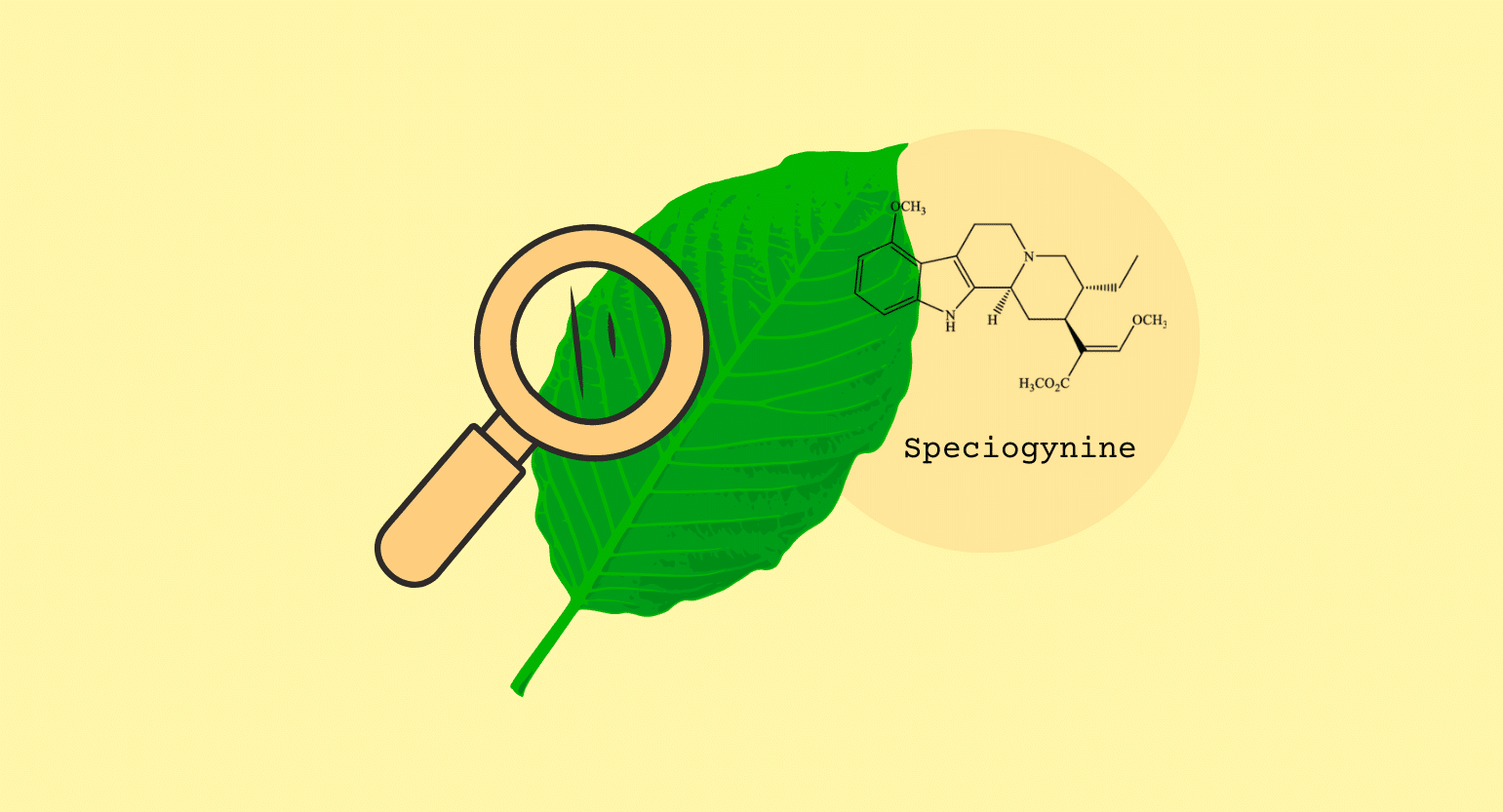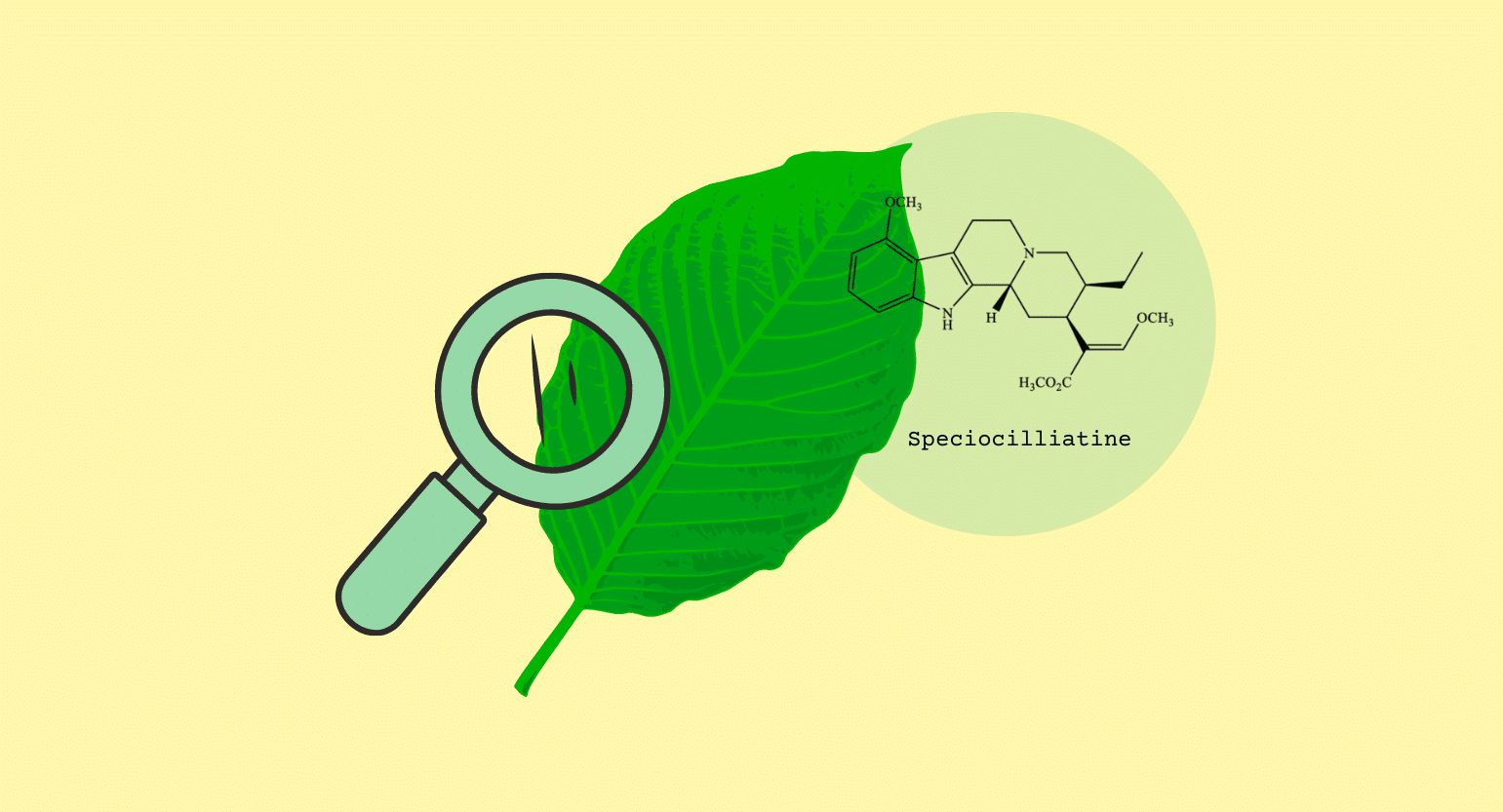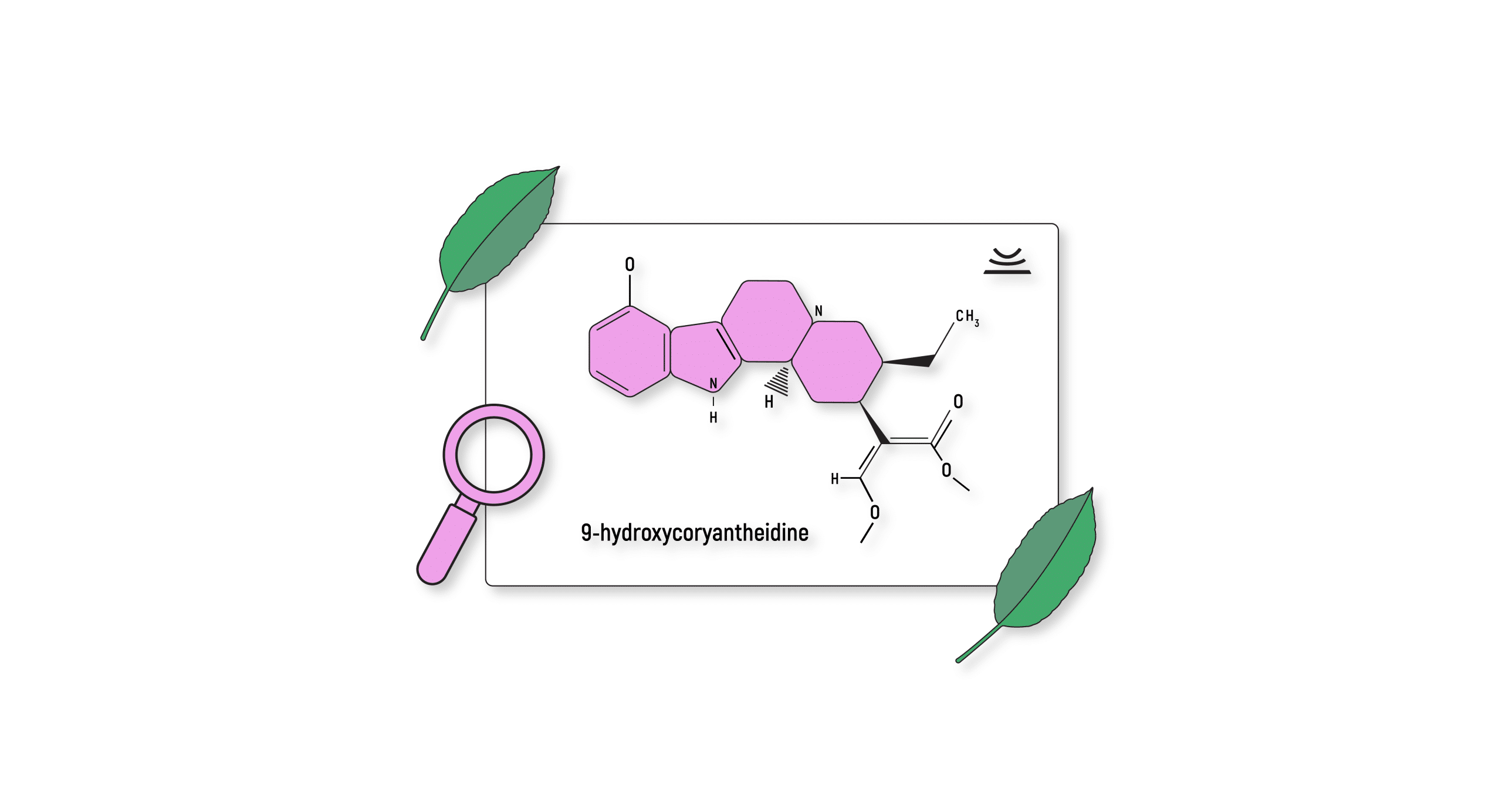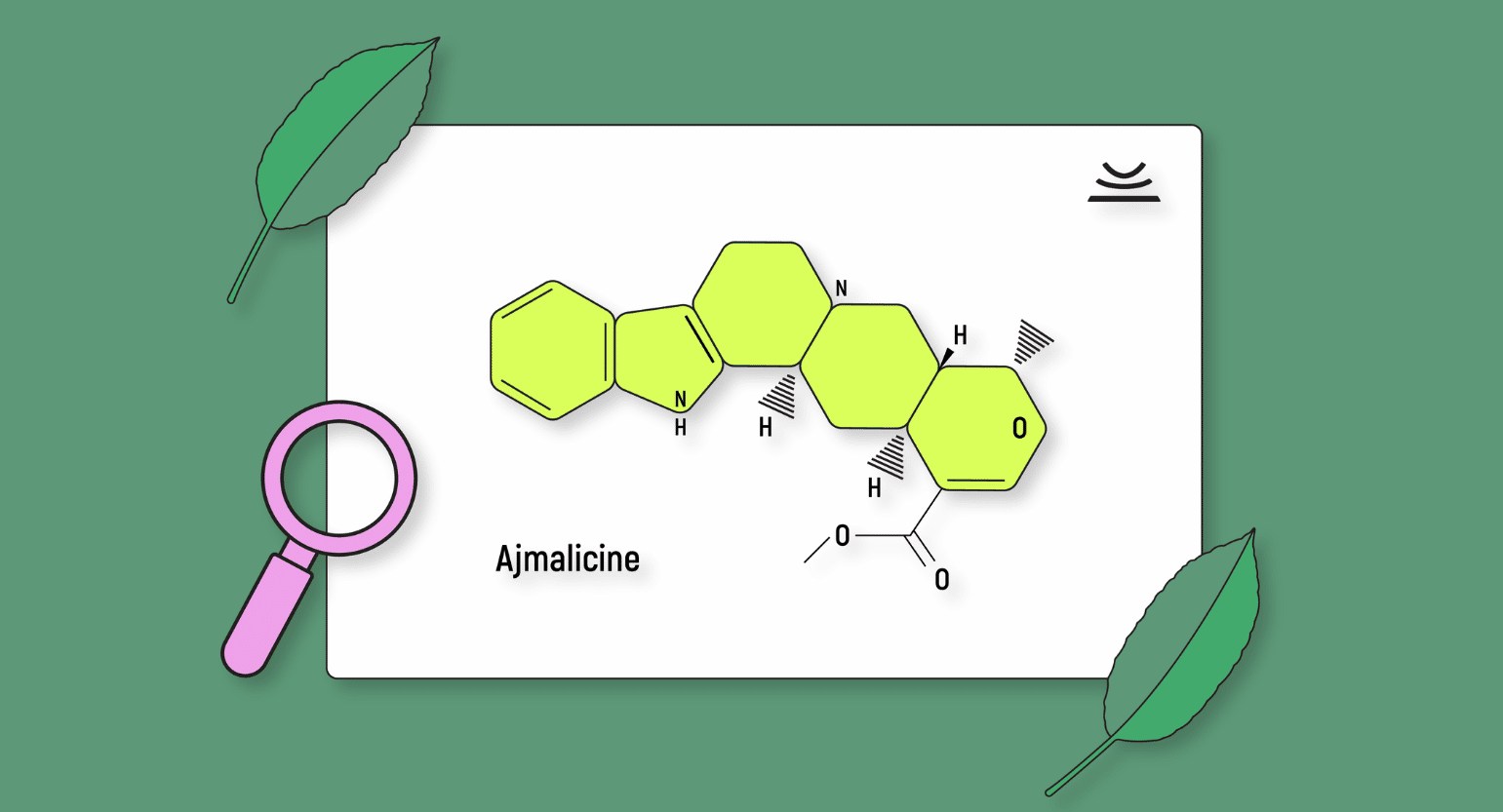What Is Daucosterol?
Daucosterol is an alkaloid, which contains nitrogen and has some physiological effects on the human body when consumed. Alkaloids are present in a massive array of plants, and some common ones include caffeine, cocaine, nicotine, and quinine.
Daucosterol occurs in relatively small concentrations in kratom, so research dedicated to this compound takes a back seat to major alkaloids like mitragynine and 7-hydroxymitragynine.
While daucosterol doesn’t seem to be a major player in the noticeable physiological and psychoactive effects that kratom provides — like euphoria and pain relief — it has been shown to provide some interesting benefits, which we’ll discuss further down.
Where Does Daucosterol Come From?
Daucosterol is found in Mitragyna speciosa, the scientific name for the “kratom tree,” a plant that grows naturally in Southeast Asia. It’s also known to appear in plants belonging to the Malvaceae family, more commonly referred to as “mallow plants.”
Which Kratom Strains Are Highest in Daucosterol?
The research on daucosterol as a standalone alkaloid is minimal, so it’s unclear which kratom strains have the highest concentration. Regardless of the strain, daucosterol appears in small quantities. Since the effects of the alkaloid aren’t typically noticeable like the pain-relieving or stimulative effects of other alkaloids, there’s nothing to suggest that specific strains contain higher concentrations.

What Does Daucosterol Do & How Does It Work?
Again, there’s very little information about the specific effects of daucosterol, but some research suggests it could be beneficial. We’ll discuss these briefly below.
Neuroprotectant
Some research suggests that daucosterol is a natural neuroprotectant, which can help reduce the risk of damage to the nervous system. It’s possible that, along with medical assistance, daucosterol could help reduce the damage done during a stroke or other acute nervous system injury [1].
It’s also possible that daucosterol could help delay the symptoms of some neurodegenerative diseases, including [2]:
- Parkinson’s disease
- Alzheimer’s disease
- Huntington’s disease
- Multiple sclerosis (MS)
The specific mechanism by which daucosterol acts as a neuroprotectant isn’t very well understood. It’s believed that it functions similarly to the insulin-like growth factor 1 (IGF-1), which helps control and maintain neuron pathways [3].
Potential Anti-Cancer Effects
Perhaps most notably, daucosterol has shown evidence of being a potential anti-cancer compound. Specifically, it’s believed that the alkaloid can induce apoptosis (mediated cell death) among cancer cells, helping to reduce the replication and proliferation of those cells [4].
Daucosterol also belongs to a family of natural chemicals called carotenoids, which might provide antioxidative properties that can help reduce tumor growth and prevent cancer cells from developing altogether [5].

What Other Plants Contain Daucosterol?
Daucosterol is naturally occurring in kratom or the Mitragyna speciosa tree. It’s also present in “mallow plants,” some of which are more common.
Some examples include:
- Hollyhock
- Hibiscus
- Buttonweed
- Cotton
- Japanese Ginseng
- Okra
It’s possible that some other plants also contain this alkaloid, specifically those that also contain carotene.
Is Daucosterol an Opiate?
No, daucosterol is not an opiate, nor are any other alkaloids contained within kratom. Daucosterol is also not commonly confused for an opiate, as it doesn’t interact with the body’s opioid receptors, though some other kratom alkaloids do.
Related: Is Kratom An Opioid?

Is Daucosterol Safe?
Daucosterol is generally safe, although there’s little information about the compound. For most people, taking daucosterol also means consuming kratom, which is also generally safe.
However, it’s crucial to understand some potential downsides to kratom before taking it. We’ll include some of the possible side effects of kratom below.
Side Effects of Daucosterol
Taking kratom to consume daucosterol does come with the potential for side effects, which include:
Mitigate most of these symptoms by reducing your intake to five days a week and three weeks per month and limiting your daily consumption to a single small or moderate dose.
Additionally, kratom can be habit-forming and is a primary reason for keeping your intake to a minimum.

How Much Daucosterol Should I Take?
Most people who consume daucosterol will take it by consuming kratom powder. Since the concentration of daucosterol in kratom is unknown, we can only offer a recommended dose of kratom.
A small powder dose of between 1 and 3 grams is recommended for mild stimulation and improved focus. A moderate amount, between 3 and 6 grams, is typically best for relaxation and mild pain relief. Larger doses, between 6 and 8 grams, are best for relieving moderate to severe pain and inducing sedation and deep relaxation.
How Long Do the Effects of Daucosterol Last?
No noticeable effects are attributed to daucosterol in particular, so it’s impossible to include a timeline. However, the physiological effects of kratom last between one and five hours for most users, depending on the dose.
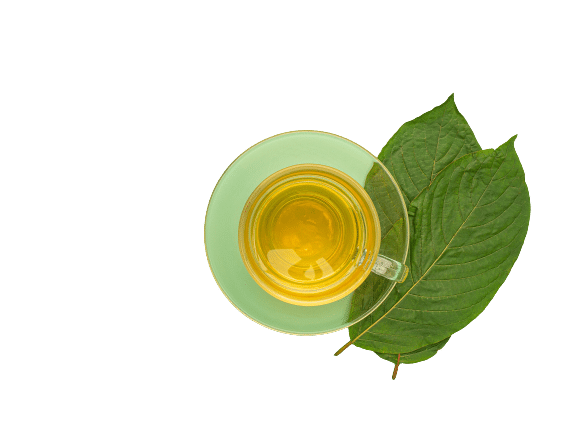
Wrapping Up: The Importance of Daucosterol in Kratom
Unfortunately, relatively little is known about daucosterol compared to the major alkaloids in kratom. However, some research suggests that it acts as an anti-cancer agent, a natural antioxidant, and a neuroprotectant that makes it helpful in treating neurodegenerative diseases.
Daucosterol appears naturally in kratom but in such small quantities that isolating it is challenging. As such, most people take daucosterol by consuming kratom powder. If you’re looking for the potential positive effects of daucosterol, taking a small dose of between 1 and 3 grams is typically recommended.
- Jiang, L. H., Yuan, X. L., Yang, N. Y., Ren, L., Zhao, F. M., Luo, B. X., … & Chen, G. (2015). Daucosterol protects neurons against oxygen–glucose deprivation/reperfusion-mediated injury by activating IGF1 signaling pathway. The Journal of Steroid Biochemistry and Molecular Biology, 152, 45-52.
- Ji, Z. H., Xu, Z. Q., Zhao, H., & Yu, X. Y. (2017). Neuroprotective effect and mechanism of daucosterol palmitate in ameliorating learning and memory impairment in a rat model of Alzheimer’s disease. Steroids, 119, 31-35.
- Vahdatpour, C., Dyer, A. H., & Tropea, D. (2016). Insulin-like growth factor 1 and related compounds in the treatment of childhood-onset neurodevelopmental disorders. Frontiers in neuroscience, 10, 450.
- Rajavel, T., Priya, G. B., Suryanarayanan, V., Singh, S. K., & Devi, K. P. (2019). Daucosterol disturbs redox homeostasis and elicits oxidative-stress mediated apoptosis in A549 cells via targeting thioredoxin reductase by a p53 dependent mechanism. European Journal of Pharmacology, 855, 112-123.
- Johnson, E. J. (2002). The role of carotenoids in human health. Nutrition in clinical care, 5(2), 56-65.

